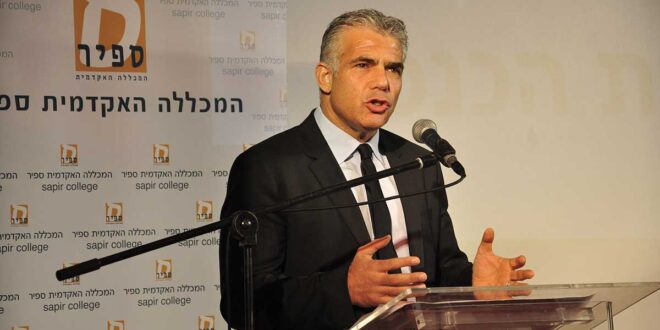The ongoing corruption trial against former Prime Minister Benjamin Netanyahu has sent shockwaves through Israel’s political, security, and economic landscape. The Israeli opposition leader, Yair Lapid, a former Prime Minister himself, was called to testify in one of three corruption cases against Netanyahu.
At the heart of the case is an alleged conflict of interest between Netanyahu’s public responsibilities and his personal relationships. Netanyahu stands accused of using his position to benefit Hollywood mogul Arnon Milchan by extending him undue favors and gifts.
According to the indictment, Netanyahu pushed legislation that would have given Milchan tax breaks worth millions of dollars. Netanyahu is alleged to have requested US officials to extend Milchan’s green card and influenced Israeli regulations to exempt Israeli returnees from declaring foreign income, a move that clearly benefited Milchan. These actions represent a stark contradiction to his public duty.
Lapid testified that Netanyahu personally tried to persuade him to back the proposed legislation. However, Lapid, who was Finance Minister at the time, rebuffed Netanyahu’s appeals. Lapid revealed that the Prime Minister approached him twice about the matter—once at his residence and another time outside a cabinet meeting. Each time, Lapid asserted that the legislation was not going to happen.
Lapid also testified that Milchan and his attorneys had previously tried to persuade him that extending the tax breaks would be beneficial for Israel. Still, he remained unconvinced. Israeli media reported that Lapid had sought legal advice on the potential for promoting the legislation that would have benefited Milchan. Nevertheless, Lapid reportedly responded with “no way” when asked about the prospects of the legislation by Netanyahu and Milchan.
Netanyahu firmly denies any wrongdoing. He has claimed that the exchanges of gifts between him and Milchan were merely friendly gestures and that he occasionally acted against Milchan’s personal interests. He argued that he was not acting in the Hollywood mogul’s personal interests, thereby refuting the claim that his public duties were compromised. Critics have accused Netanyahu of attempting to undermine the judiciary and manipulate the legal system to escape his trial.
Netanyahu’s trial has led to a protracted political crisis in Israel, with the nation going to the polls five times in less than four years—each vote essentially a referendum on Netanyahu’s fitness to rule. The trial has undermined Netanyahu’s political standing and credibility, causing deep divisions within Israel’s political system. This has created an environment of political instability, making it challenging for the government to tackle pressing national issues effectively. As the trial proceeds, Milchan is expected to testify via a video call from London later this month. This highly anticipated testimony will certainly be critical in the unfolding case against Netanyahu.
The trial’s security implications are multifold. At a domestic level, the corruption cases against Netanyahu and the subsequent political turmoil might have implications for the overall law and order situation. If Netanyahu’s supporters view the legal proceedings as politically motivated, it could lead to social unrest and public demonstrations, thereby affecting national security. At an international level, the trial might also have implications for Israel’s relationships with its allies, especially the United States. If the allegations against Netanyahu for seeking personal favors from U.S. officials for Hollywood mogul Arnon Milchan are proven true, it could potentially strain Israel-U.S. relations.
The corruption trial has likely induced uncertainty within the Israeli economy, as investors often shy away from markets perceived as unstable. The repeated allegations of corruption at the highest levels of government might have the potential to undermine investor confidence and thereby harm the Israeli economy. The case specifically revolves around the proposed legislation that would have granted significant tax breaks to immigrants and returning residents. If such legislation were enacted, it could lead to a significant reduction in tax revenues, potentially straining Israel’s fiscal situation and its ability to finance public expenditures.
This corruption trial against Netanyahu marks a significant moment in Israel’s political landscape. Netanyahu’s long reign as Prime Minister is clouded by multiple scandals involving media moguls and wealthy associates, and this trial could alter the political dynamic of the country significantly. As the saga continues, all eyes will remain on the courtroom, awaiting the outcome that could shape Israel’s political future.
 Geostrategic Media Political Commentary, Analysis, Security, Defense
Geostrategic Media Political Commentary, Analysis, Security, Defense





